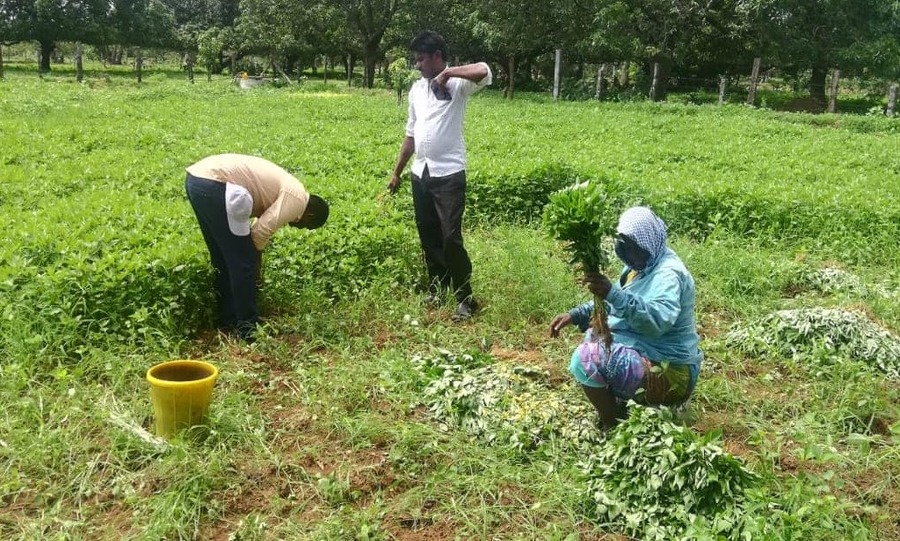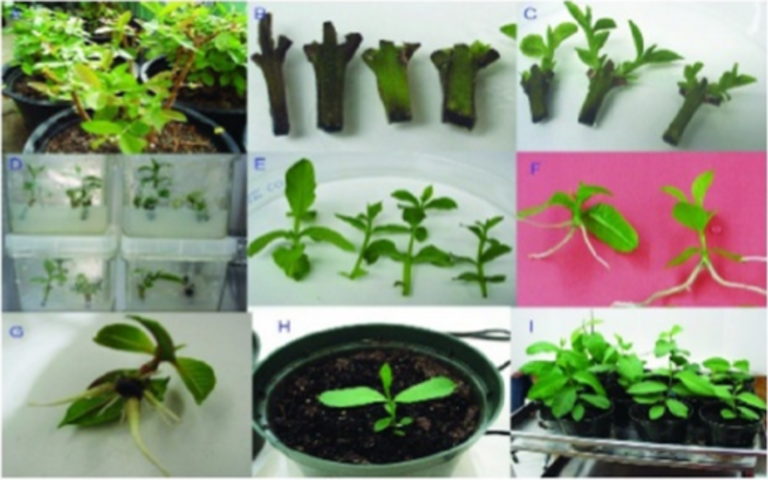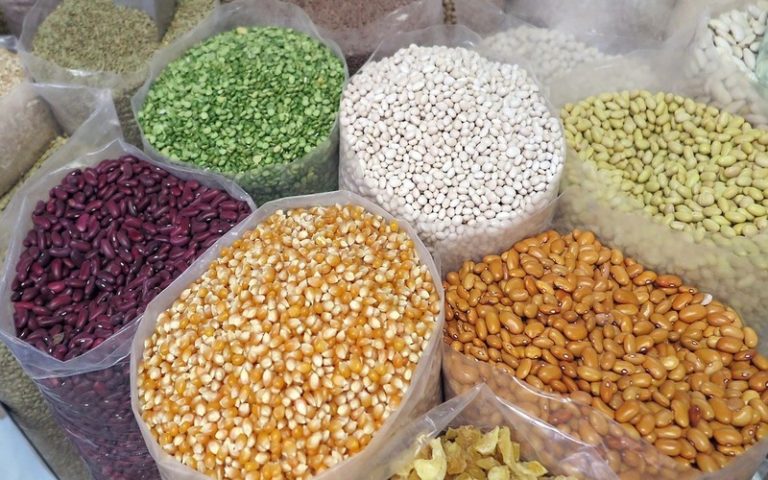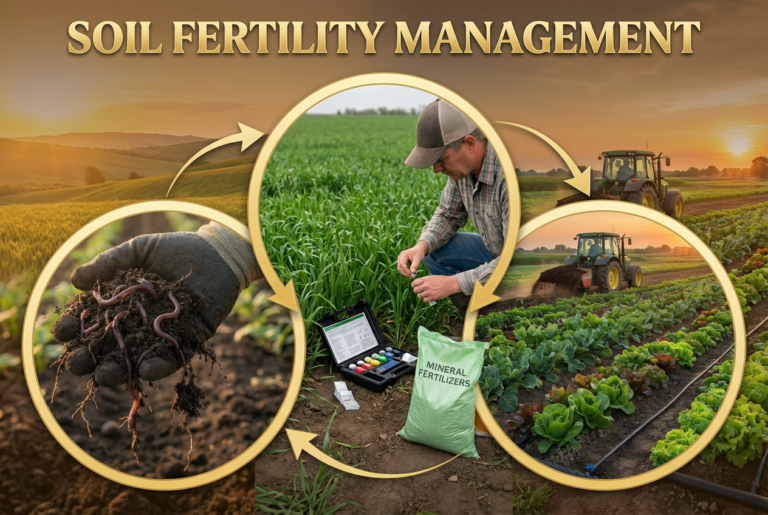Zero Budget Natural Farming: Empowering Small-Scale Farmers and Rural Communities
Zero Budget Natural farming is an agricultural practice that grows crops using natural resources and techniques rather than chemical fertilizers, pesticides, or other synthetic inputs. This farming method is gaining popularity due to its many benefits, including improved soil health, higher crop yields, and lower costs.
In this article, we will explore Zero Budget Natural Farming in detail, including its principles, practices, advantages, challenges, and success stories.
What is Zero Budget Natural Farming?
Zero Budget Natural Farming is a farming practice that improves soil health and plant development by using natural resources such as cow dung, urine, and crop wastes. This technique is founded on four guiding principles: (1) no external inputs are used, (2) natural resources are recycled, (3) crops are cultivated in accordance with nature, and (4) revenue is created from many sources.
Natural farming on a shoestring budget varies from conventional agricultural methods that rely on chemical fertilizers, pesticides, and other synthetic inputs. Instead, it employs techniques like as seed treatment, soil fertility management, insect control, and crop management to ensure that plants grow well and generate a large amount of food.
How to Practice Zero Budget Natural Farming?
To practice Zero Budget Natural Farming, farmers need to follow a few key steps:
1. Employ natural and organic seed treatments to defend against pests and illnesses and to aid in the sprouting of seeds. Seed treatment using organic substances such as cow urine, cow dung, and herbal extracts is included.
2. Improve the soil’s structure and fertility using organic manures like cow dung, cow urine, and compost. The soil’s fertility, moisture, and aeration are all better preserved in this way.
3. Crop rotation, intercropping, and the use of natural insect repellents like neem leaves and garlic are all effective forms of pest management. As a result, less chemical herbicides and insecticides are required.
4. Crop rotation, intercropping, and the use of organic pest deterrents like neem leaves and garlic should all be employed as natural pest management strategies. As a result, less synthetic pesticides and herbicides are required.
5. Plant a variety of crops, vegetables, fruits, and trees to promote biodiversity. This aids in soil conservation, nitrogen cycling, and boosting the farming system’s resilience.
6. Improve the health of the soil and crops by utilizing local knowledge and resources such as herbal extracts and biofertilizers.
Overall, the goal of Zero Budget Natural Farming is to create a self-sufficient farming system that uses the natural resources and ecosystem services in the local area instead of expensive inputs from outside the area.

Advantages of Zero Budget Natural Farming
Zero Budget Natural Farming has several advantages over conventional farming methods, including:
- A. Cost-effectiveness: Zero Budget Natural farming does not necessitate the use of costly synthetic inputs such as chemical fertilizers, pesticides, and herbicides, making it a cost-effective option for farmers.
- B. Sustainability: Zero Budget Natural farming encourages environmentally friendly agricultural methods that lessen soil erosion, land degradation, and other forms of pollution. It is dependent on ecosystem services and natural resources, which makes it more tolerant of climate change.
- C. Healthier food: By avoiding the use of synthetic inputs, Zero Budget Natural Farming produces healthier, chemical-free food that is better for human consumption. It also preserves the nutritional value of the soil and crops.
- D. Higher yields: Most people think that natural farming will lead to lower yields, but Zero Budget Natural Farming has shown that in the long run, it can have the same or even higher yields than conventional farming.
- E. Economic Benefits: Zero Budget Natural Farming promotes the use of local resources, traditional knowledge, and community-based systems, which can create economic opportunities for farmers and rural communities.
- F. Biodiversity conservation: Zero Budget Natural Farming helps to protect biodiversity by encouraging crop diversity. This keeps local ecosystems healthy and strong.
Natural farming on a shoestring budget has the potential to transform the agricultural sector into a more sustainable, resilient, and cost-effective model that benefits both farmers and the environment.
Challenges and Limitations of Zero Budget Natural Farming
Zero Budget Natural Farming has a lot of good points, but it also has some problems and limits, such as:
Initial setup costs:
Transitioning from conventional farming to Zero Budget Natural Farming requires a significant investment of time and resources, particularly for soil preparation, seed treatments, and natural pest management practices.
Knowledge and skill requirements:
To effectively practice Zero Budget Natural Farming, farmers need to have a deep understanding of natural resource management, soil science, and organic farming practices. It requires a considerable amount of knowledge and skill to manage crops and pests using natural techniques.
Time and labor-intensive:
Natural farming practices like manual weeding and intercropping require more time and labor compared to conventional farming practices, which can be a challenge for small-scale farmers with limited resources.
Yield variability:
Zero Budget Natural Farming practices may result in yield variability due to unpredictable weather patterns and the challenges of managing pests and diseases using natural methods.
Market access:
Farmers may face difficulties in accessing markets that value natural and organic produce, which could limit their economic benefits.
Lack of policy support:
Governments may not provide adequate support for natural farming practices, and policies may favor conventional farming practices, which could limit the growth of Zero Budget Natural Farming.
While Zero Budget Natural Farming has several advantages, it also has its limitations and challenges that must be addressed to promote its widespread adoption and scalability.
Success Stories of Zero Budget Natural Farming
Zero Budget Natural Farming has been successfully implemented in several regions across the world, and the following are some of the success stories:
India: Andhra Pradesh is one of the largest states in India that has adopted Zero Budget Natural Farming. In 2016, the state government launched a program called ‘Rythu Sadhikara Samstha‘ to promote Zero Budget Natural Farming. Through this program, over 500,000 farmers have adopted the practice, resulting in increased yields and reduced input costs.
Bhutan: Bhutan is a small country in the Himalayas that has implemented Zero Budget Natural Farming since the 1990s. Through the program, farmers have achieved higher yields, improved soil fertility, and increased biodiversity. Additionally, the program has reduced the use of synthetic pesticides and herbicides, leading to healthier food and improved environmental sustainability.
Mexico: In Mexico, a nonprofit organization called ‘Mayan Farmers’ has implemented Zero Budget Natural Farming practices to promote food security and economic empowerment among small-scale farmers. The program focuses on soil fertility management, natural pest control, and intercropping, resulting in improved crop yields, income generation, and biodiversity conservation.
Kenya: Sustainable Agriculture Tanzania-Kenya has promoted Zero Budget Natural Farming among Kenyan small-scale farmers. Farmers’ input costs have gone down, their crop yields have gone up, and the health of the soil has gotten better because of the program. This has improved food security and made the economy more stable.
France: Agroforestry is a method of Zero Budget Natural Farming that has been adopted by a group of farmers in France. The technique entails growing crops and trees together, enhancing soil fertility, increasing yields, and enhancing biodiversity.
Overall, these success stories show that Zero Budget Natural Farming is a viable and effective way to farm that promotes sustainable practices, economic empowerment, and environmental conservation.
Conclusion
A sustainable and ecologically beneficial agricultural technique, zero budget natural farming provides several advantages for farmers, the environment, and society. Although there are certain difficulties and restrictions, the likelihood of greater profitability and enhanced soil health make it a viable strategy for agriculture’s future. We can contribute to a more sustainable and just future by embracing and supporting zero budget natural farming.
FAQ:
Q: What is Zero Budget Natural Farming?
A: Zero Budget Natural Farming is an agricultural practice that eliminates the use of chemical fertilizers and pesticides, and focuses on the use of natural resources and techniques such as cow dung, cow urine, and crop rotation to improve soil fertility and manage pests.
Q: Who can practice Zero Budget Natural Farming?
A: Anyone can practice Zero Budget Natural Farming, including small-scale farmers, homesteaders, and individuals interested in sustainable agriculture.
Q: How does Zero Budget Natural Farming differ from conventional farming?
A: Zero Budget Natural Farming differs from conventional farming in that it does not require the use of synthetic fertilizers and pesticides, and focuses on natural methods of improving soil fertility and managing pests.
Q: What are the benefits of Zero Budget Natural Farming?
A: The benefits of Zero Budget Natural Farming include improved soil health and fertility, reduced input costs, increased crop yields, improved biodiversity, and reduced environmental pollution.
Q: Is Zero Budget Natural Farming more labor-intensive than conventional farming?
A: Zero Budget Natural Farming can be more labor-intensive than conventional farming because it requires manual weeding and intercropping. However, the overall input costs are significantly lower, leading to greater economic sustainability.
Q: Can Zero Budget Natural Farming be practiced on a large scale?
A: Yes, Zero Budget Natural Farming can be practiced on a large scale, as demonstrated by successful programs in India and other parts of the world.
Q: Does Zero Budget Natural Farming require any special training or knowledge?
A: Yes, Zero Budget Natural Farming requires a deep understanding of natural resource management, soil science, and organic farming practices. Farmers need to have a considerable amount of knowledge and skill to manage crops and pests using natural techniques.
Q: Is Zero Budget Natural Farming profitable?
A: Yes, Zero Budget Natural Farming can be profitable for farmers as it reduces input costs, increases crop yields, and improves soil fertility, leading to greater economic sustainability.
Q: How can I transition to Zero Budget Natural Farming?
A: Transitioning to Zero Budget Natural Farming needs careful planning and preparation, such as preparing the soil, treating the seeds, and keeping pests away naturally. Farmers can get help from local agricultural extension services and groups that work to make agriculture more sustainable.
Q: Is Zero Budget Natural Farming better for the environment?
A: Yes, Zero Budget Natural Farming is better for the environment as it eliminates the use of synthetic fertilizers and pesticides, leading to reduced pollution and improved soil and water quality.
Also Read:







